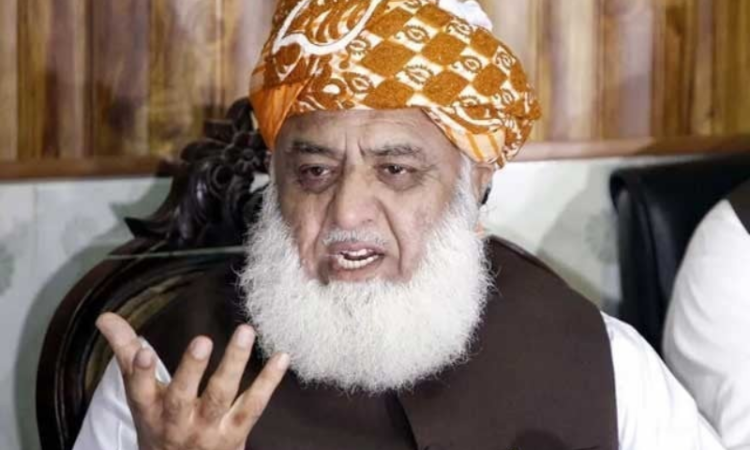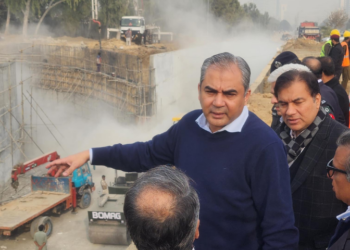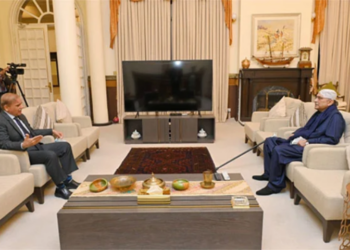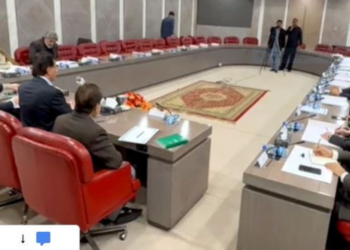Dera Ismail Khan, December 12,2024: Jamiat Ulema-e-Islam-Fazl (JUI-F) chief Maulana Fazlur Rehman on Thursday called on the government to formally notify the Societies Registration (Amendment) Bill 2024, which governs the registration of madrassas. He asserted that the bill had effectively become law after being returned twice by the president.
Speaking at a press conference, Fazl questioned, “If a bill is not signed within 10 days, doesn’t it automatically become an act?” He maintained that the government was obligated to notify the legislation, citing Article 75(2) of the Constitution, which states that a bill passed by parliament and not signed by the president within 10 days is considered assented to by default.
The madrassa registration bill, which was passed by both houses of parliament, remains a contentious issue between the JUI-F and the government. Fazl reminded the audience that its enactment was part of a deal struck with the government to secure JUI-F’s support for the 26th Constitutional Amendment.
The bill, which seeks to transfer madrassa registration from the Ministry of Education to the Ministry of Industries, was returned twice by President Asif Ali Zardari, who cited legal objections. Following the president’s refusal, the legislation was sent back to a joint sitting of parliament, as required by the Constitution. The bill was subsequently passed again, leaving no room for further objections, Fazl argued.
The JUI-F leader criticized the government for delaying the notification process, citing a precedent where former president Arif Alvi’s refusal to sign a bill did not prevent it from becoming law after the 10-day period elapsed. Fazl vowed to take the matter to court if the government failed to notify the bill, accusing the ruling coalition of “ridiculing” the Constitution and law.
The Societies Registration (Amendment) Bill 2024 modifies the Societies Registration Act of 1860 and mandates the registration of madrassas within six months of enactment. Newly established seminaries are required to register within one year of their establishment. Madrassas with multiple campuses will require only one registration, while all seminaries must submit an annual report of their educational activities and an audit report to a registrar. The law defines a madrassa as a religious institution providing religious education with boarding and lodging facilities.
At a recent Conference on Madrassa Registration and Reforms, attendees passed a resolution opposing the bill’s provisions. The resolution demanded that madrassas remain affiliated with the Ministry of Education and opposed the establishment of a new directorate for their oversight.
Fazl also highlighted unmet commitments from the government, including the opening of bank accounts for madrassas affiliated with Wifaq ul Madaris, a demand stipulated in the agreement between the JUI-F and the government.
Addressing religious scholars, Fazl alleged that individuals inciting opposition to the bill were responsible for the ongoing controversy. He criticized the government for its “non-serious attitude” toward resolving critical issues and questioned the scope of President Zardari’s objections to the legislation, which was prepared by the Ministry of Law.
The madrassa registration bill has sparked widespread debate, with its provisions and implementation likely to impact the future regulation of religious schools in Pakistan.









